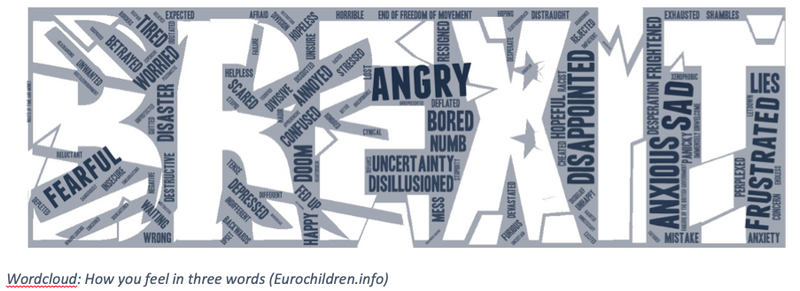Eventually, I paid my £1349 and submitted my application and joined over 100,000 EU citizens who have applied for British naturalisation since the 2016 EU Referendum.
I gave myself a few extensions, but ultimately I blinked first, before the hard Brexiters, the Prime Minister, the EU negotiators and even Jeremy Corbyn (and his constructive ambiguity strategists). Roughly two years, this is how long I sat on the application for British naturalisation. But it was not an exercise in the noble art of procrastination. To be fair, I was a relatively early taker of ‘permanent residence’ (PR) which I applied for in December 2016, six months after the EU referendum.
The name is a bit of a misnomer; your Permanent Residence is only permanent for as long as the UK is a member of the EU – but it also happens, thanks to Theresa May who championed this change when at the Home Office, to be a requirement for applying for naturalisation. The envelope with the PR arrived at my home three month later and I immediately booked my Life in the UK test (another requirement) for the following week. Having successfully taken the test, I went back home with my ‘pass’ certificate. By March 2017, nine months after the referendum, there was nothing left between me and the naturalisation application, apart from £ 1349.20 and the Brexit negotiations.
Two years came and went. In the meantime my team spoke and interviewed dozens of EU nationals for the Eurochildren project, asked them how they were coping with the uncertainty of the Brexit process. We shared anecdotes, worries and plans. Together with an array of feelings, captured by the wordcloud below, ‘a sentimental helter-skelter’ as one of our participants called it: anger, disillusionment, hope (occasionally), frustration, uncertainty, anxiety, and precariousness.

Leave or remain?
Leave or remain? Becoming or not becoming British? These questions figured in some shape or form in all these conversations. For some these are binaries, either/or dilemmas, for others it is all about ‘taking back control of our own lives’, to increase the options available for one’s family not only in the here and now but also in the future.
This meant, for some of our interviewees, applying for naturalisation and soon after having received it leaving the country to rebuild life elsewhere – but with the option of returning home to Britain in case things didn’t work out, or simply to make sure when travelling back and forth for whatever reason that they didn’t have to go through any kind of intrusive and unpleasant vetting by the Home Office.
Eventually a few days ago after yet another failed attempt to find a solution for the Brexit deadlock in Westminster, I paid my £1349 and submitted my application and joined over 100,000 EU citizens who have applied for British naturalisation since the 2016 EU Referendum (Home Office 2018).
Earned citizenship
But this was not the end. I had now to arrange an appointment with the Home Office’s ‘commercial partner’, just a reminder that the dispensation of passports is a fully-fledged for-profit business and that there is nothing abstract in the expression earned citizenship that politicians so much like. It is pretty literal, for each application the Home Office makes roughly £1000 profit.
The aim of the appointment is to check that the documentation I am submitting is in good order and to take my biometrics. I feel a bit anxious and am shivering, not sure if from a bad cold or if it is psychosomatic.
I had done my homework, uploading all the documentation online to save time. I included more (optional) attachments than I felt comfortable with, but this is the nature of the process. The first thing I am called to do is my photo. A few people before me go in and out in a sec. I stand in front of the photo scanner, the lens makes some squeaky noises trying to focus, done. No, red flag alert on the screen. Second attempt, rejected again. Third, red flag again. I look at the attendant anxiously in search of a clue. ‘It’s your hair’, she says. ‘We need to take the photo manually’.
I am sent back to the waiting area. The large majority of those waiting are from the Asian subcontinent and African commonwealth countries. There are quite a few infants and children and the atmosphere, a mix of boredom and anxiety, is not very different from a GP’s waiting room. It helps that all but one of the seven people I can count working at the desks are as diverse as the people waiting in the room.
After a short wait and a few minutes at the desk, I am out of the office. My shivering didn’t go away, so I can confirm it was not psychosomatic. However, luckily, as any aspiring British passport holder has to learn, there is nothing that can’t be cured with a good dose of paracetamol.
Article originally published in OpenDemocracy
